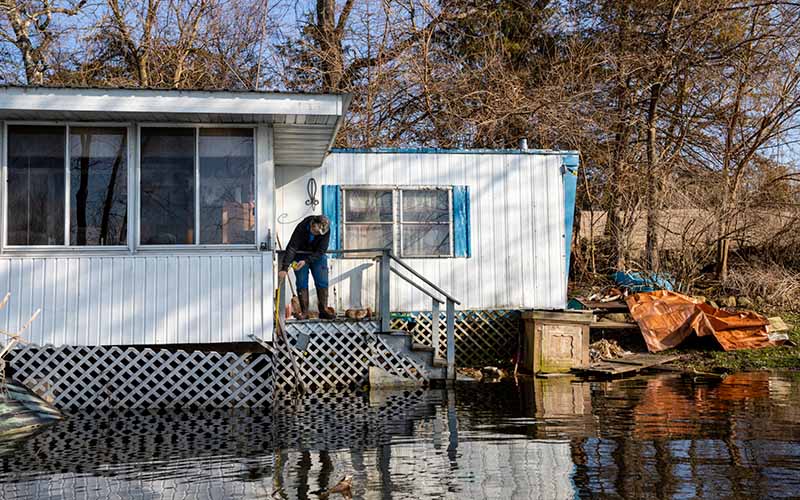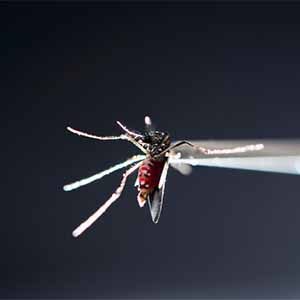In communities across the Midwest, climate change is harming our health now. The latest report from the Wisconsin Initiative on Climate Change Impacts (WICCI) shows that more flood-ing, extreme weather events, longer growing seasons, and warmer average temperatures are contributing to an increase in heat-related illness, infectious diseases spread by mosquitoes and ticks, illnesses from contaminated food and water, worsening chronic illnesses, injuries, and deaths from dangerous weather events, and mental health problems.
Extreme heat events will become more common as the climate warms. By mid-century, Milwaukee will likely experience triple the number of days with a heat index above 105 degrees, a combination of air temperature and humidity. The health of everyone is at risk during extreme heat events, but some of us face greater risk than others. Low-income residents, older adults, people who work outside, and people with chronic conditions are at risk for heat stroke and dehydration at those temperatures.

As Wisconsin is warming and becoming wetter, we are already seeing an increase in flooding. In addition to the physical damage of flooding, flood waters can contribute to contaminated drinking water in private wells. When houses flood, there are also serious concerns of respiratory health risks, including asthma. Heavy rains can also wash more nutrients into lakes and streams and fuel potentially toxic algal blooms.
With longer growing seasons and warmer average tempera-tures in Wisconsin, disease-carrying ticks and mosquitoes are becoming more wide-ly distributed. These insects carry Lyme disease, West Nile virus, and other diseases. As the climate continues to warm, the active transmission season for these diseases is lengthening and infec-tions will likely increase.
But there is hope. The Human Health Working Group recommends a full embrace of clean energy, walkable communities, public transportation, green building design, and protecting the most vulnerable during extreme weather events. There is hope for the future, but it’s up to us.
This article is part of a series highlighting the contribution from each WICCI Working Group for the 2021 WICCI Assessment Report.
Human Health Working Group - Stories
Support WICCI
Gifts to the Wisconsin Initiative on Climate Change Impacts (WICCI) Program Fund provide general, discretionary program support and are used to enhance and expand WICCI’s teaching, research, and public service roles. Gifts are also used to support partnership-building activities, include faculty, staff, and student recruitment, retention, and morale.
The Wisconsin Initiative on Climate Change Impacts (WICCI) is a statewide collaboration of scientists and stakeholders formed as a partnership between UW–Madison’s Nelson Institute for Environmental Studies and the Wisconsin Department of Natural Resources. WICCI’s goals are to evaluate climate change impacts on Wisconsin and foster solutions.



